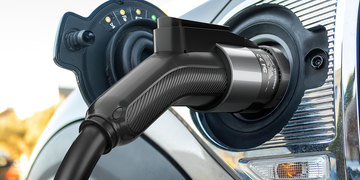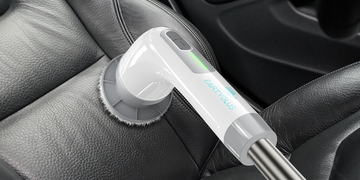When choosing a Level 2 electric car charger, consider factors such as your vehicle's charging capabilities, your budget, installation requirements, and any additional features you may need, such as Wi-Fi connectivity, smart charging, and portability. With more and more electric car models hitting the market, there's a growing variety of home EV chargers available. These range from hardwired home charging stations to portable chargers that you can easily carry in your car. Imagine the ease of not having to drive to a public charging station and wait for hours. Just plug in your EV overnight, and in the morning, you're all set for your day, Let’s take a look at the Best Level 2 EV Charger.
What is a Home EV Charger?
A home EV charger, specifically a Level 2 charger, is a device designed to recharge your electric vehicle quickly and efficiently. Unlike standard Level 1 chargers that come with most EVs and plug into a standard household outlet, Level 2 chargers use a 240-volt circuit to deliver a higher charging rate. This results in significantly faster charging times, making Level 2 chargers the preferred choice for most EV owners.
What to look for when buying a level 2 charger
Plug
Compatibility is essential. Ensure that the charger's plug type aligns with your EV's receptacle. It's crucial to verify compatibility, as different electric vehicles may utilize distinct plug types. Some, like the J1772, are standard, while others, such as Tesla's North American Charging Standard (NACS), are unique. Adapters can often bridge the gap if a perfect match isn't available.
Amperage
Understanding charging speed. Amperage, often referred to as charging power, dictates the rate at which your EV charges. Selecting the right amperage is like choosing your vehicle's cruising speed. Higher amperage results in faster charging, but it's important to check whether your car's onboard charger can fully utilize the selected amperage. A mismatch can lead to inefficiencies.
Cable length
Practical length matters. Consider the practicality of the cable length provided with the charger. Ideally, it should comfortably reach your EV's charging port without requiring any stretching or straining. Anticipate the distance between your charging station and your parking spot, allowing for flexibility.
Future-proofing flexibility. When determining cable length, think about potential future adjustments in your charging setup. Having a bit of extra length can be a wise choice, especially if you plan to reconfigure your charging location.
Connectivity
Smart features for convenience. Many modern Level 2 chargers offer advanced features, such as Wi-Fi connectivity and smartphone apps. These capabilities empower you to remotely monitor and manage your charging sessions. A smart EV charger allows you to schedule charging during off-peak hours, track energy consumption, and receive alerts when your EV is fully charged or if any issues arise.
Energy efficiency and convenience. The smart features enable you to optimize your charging for cost savings and convenience. Smart chargers are like programmable thermostats that let you set your home's temperature just the way you like it.
Outdoor use
Weatherproof design. If you plan to install the charger outdoors, look for models designed to withstand various weather conditions. These EV chargers typically possess robust weatherproofing features, ensuring they function reliably in rain, snow, and extreme temperatures. For those living in regions with cold winters, it's essential to also consider the impact of cold weather on electric cars and their charging performance to ensure a seamless charging experience year-round.
Longevity and reliability. Outdoor-rated chargers are built to last, similar to how outdoor furniture is constructed to withstand sun and rain without fading or corroding. Investing in a charger built for outdoor use ensures long-term reliability and performance, regardless of the weather.
Certifications
Safety certification. Look for chargers with safety certifications like UL (Underwriters Laboratories) or ETL (Intertek). These certifications ensure that the charger meets strict safety standards for your peace of mind.
Energy efficiency. If you're eco-conscious, consider ENERGY STAR certification. It means the charger is designed to be energy-efficient, helping you save on operating costs.
Cybersecurity. For chargers with smart features, check for cybersecurity standards. ISO 27001 certification indicates that the manufacturer has strong information security practices, keeping your data safe.

Installing a Level 2 Charger at Home
Installing a Level 2 charger at home is an excellent way to ensure convenient and efficient charging for your EV. There are two primary options for installation: hardwired and non-hardwired. Let's discuss both methods:
Hardwired installation
A hardwired installation involves permanently connecting your Level 2 EV charging station to your home's electrical system. This method provides a dedicated and clean charging solution. It typically requires professional installation to ensure compliance with electrical codes and safety standards. A licensed electrician will inspect your electrical panel to determine if it can support the charger's amperage, and they may need to upgrade your electrical service if necessary. While hardwired installations can be costlier due to installation fees and potential electrical upgrades, they offer the advantage of a fixed, secure charging station. However, they lack mobility and flexibility, making them suitable for homeowners who don't plan to move their charging stations.
Non-hardwired installation
Non-hardwired installations offer a more portable and cost-effective solution. These chargers can be plugged into a standard electrical outlet, typically using a National Electrical Manufacturers Association (NEMA) 14-50 plug. They are more suitable for renters or those who may want to move their chargers in the future. While non-hardwired chargers are more budget-friendly and don't require professional installation, they may have limitations on amperage and charging speed. Proper cable management is essential with non-hardwired setups to ensure the charging cable is neatly stored when not in use. This method provides convenience and flexibility, especially for those with changing living situations or who prefer a DIY approach to installation.
Telgeoot the best Level 2 EV Charger
Tired of the endless waiting at public charging stations? Say goodbye to those inconveniences with our cutting-edge Telgeoot EV Charger. Designed with your ultimate convenience in mind, this state-of-the-art charger takes electric vehicle charging to new heights.

Discount Price: $390.00 $599.00
· Up to 44 mi of range added per hour at 11 kW / 48 amp output
· Auto-sensing handle to open charge port
· Monitor and manage your charging schedule and usage from the Tesla app
· Wi-Fi connectivity for over-the-air updates, remote diagnostics and access controls
· Versatile indoor / outdoor design
· Variable amperage configurations depending on installation location
· Power-share with up to six Wall Connectors
· 19.6-foot cable length
· One-year warranty for residential use
Telgeoot the best Level 2 EV Charger, Built to withstand the toughest environments, this charger is a perfect companion for both urban explorers and nature enthusiasts alike. Rain, snow, or scorching heat – this charger can handle it all, ensuring a reliable charge wherever your adventures take you. Get yours today and elevate your electric vehicle experience to electrifying heights!





